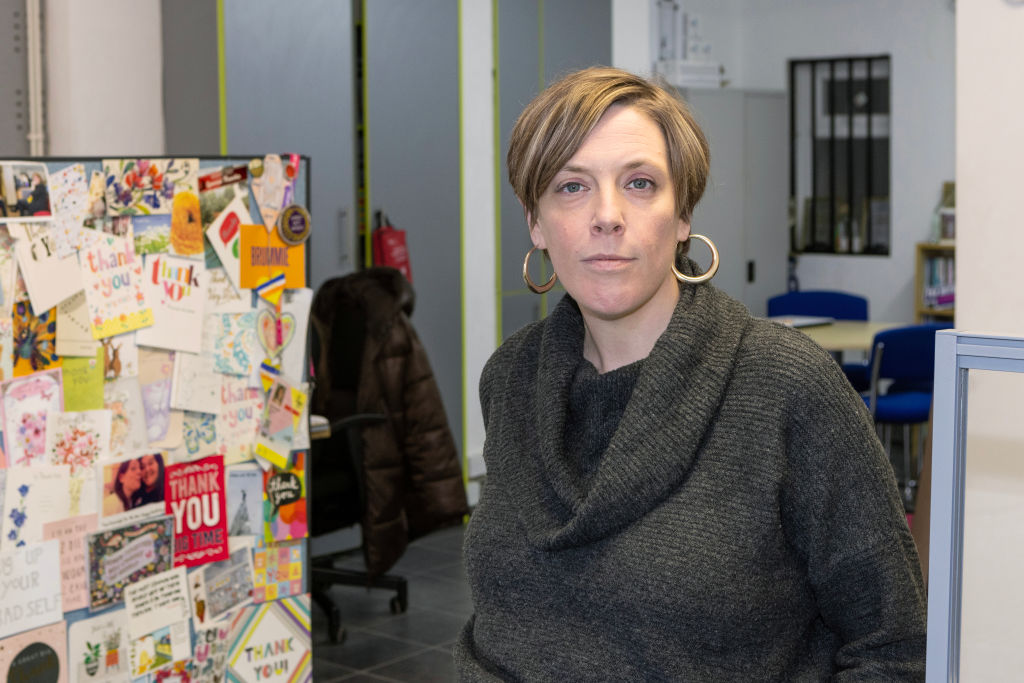Imagine you are the parent of a primary-school aged boy. Outside of family, how many men do you think your son would interact with, compared to women? The answer is unlikely to be balanced. In the UK, 98 per cent of childminders and nursery workers are female – as well as 99 per cent of health visitors, 87 per cent of social workers, 79 per cent of librarians, 96 per cent of speech therapists, 89 per cent of nurses, 58 per cent of GPs, 61 per cent of paediatricians, and 63 per cent of youth club workers.
Your son is unlikely to come across many men at school either. 85 per cent of primary school teachers are female; nearly a third of primary schools do not have a single male classroom teacher, meaning nearly a million children have no male role model in an education setting. The situation is even worse in schools in disadvantaged areas or in special measures, where that figure is closer to 40 per cent.
We need male role models to help boys navigate all the daily trials and tribulations of the real world
Perhaps this isn’t a problem because your son has a strong father figure in his life. If he does, then he is one of the lucky ones – almost 3 million children in the UK, or one in five, have no father at home. In certain communities, your son would be in the minority: in Black Caribbean households, 63 per cent are headed by a single parent, and among the poorest, only 19 per cent have a father at home.
This lack of male contact and interaction matters. It matters because studies show that, even as early as five months, babies with engaged fathers enjoy greater cognitive development than those whose fathers are absent. It matters because, currently, girls outperform boys at every key stage in education: they are more likely to pass their GCSEs, achieve As and A*s at A-level, and go onto university. It matters because men are more likely to be unemployed, to be drug addicts, to be victims of violent crime, to commit suicide, and the risk of all of these is exacerbated by having an absent father.
This is why the thinktank Centre for Policy Research on Men and Boys is right to push the government to commit to a strategy for reversing boys’ underperformance in schools. The centre is particularly keen for the government and local authorities to work with civic organisations such as the Scouts and cadets to increase boys’ membership and increase the number of male mentors both in and outside of schools.
We have known that boys – and in particular white working-class boys – have been struggling in school for decades. Back in 2008, a report found ‘disproportionately low attainment amongst white British pupils’. A 2013 Ofsted report concluded that white British boys have ‘stubbornly low outcomes that show little sign of improvement.’ There was a parliamentary hearing on their underperformance in February 2014; a lengthy investigation by King’s College London in 2015; and another similar report by the Sutton Trust in 2016.
We have sat on this data for years, but no action has been taken. A Freedom of Information request in 2015 elicited this short response from the Department of Education: ‘[We] do not fund any initiatives that specifically focus on the underachievement of boys.’ Mary Curnock Cook, the former head of UCAS, said that this issue ‘always got a few headlines, [but] where it never got any traction at all was in policy-making in government… the subject of white boys is just too difficult for them.’ Since then the situation has only worsened: in under 1 per cent of all secondary schools in England do white working-class children perform as well as their peers.
More male role models is a good place to start. Yet conversations around the need for good role models are always couched as necessary to counteract the dangers of the online world (as seen in the feverish reaction earlier this year to the Netflix drama – not documentary – Adolescence). As Gareth Southgate said in his Richard Dimbleby lecture for the BBC, this void in young men’s lives is being filled by ‘callous, manipulative and toxic influencers whose sole drive is for their own gain.’
He’s right, but we also need male role models to help boys navigate all the daily trials and tribulations of the real world too – and these also need to be in person. Families have become more and more insular: participation in community groups and churches has declined; children don’t play outside as much, so are less likely to know their neighbours; and extracurricular clubs are often too expensive for parents. Children therefore know fewer adults than before, so they look to online influencers, celebrities, and people in positions of power for models of masculinity.
Yet studies show that adults who children personally know – and, crucially, who share the same gender and race – have the biggest positive effect on young people. If these relationships no longer occur naturally, then we need to make them happen.







Comments